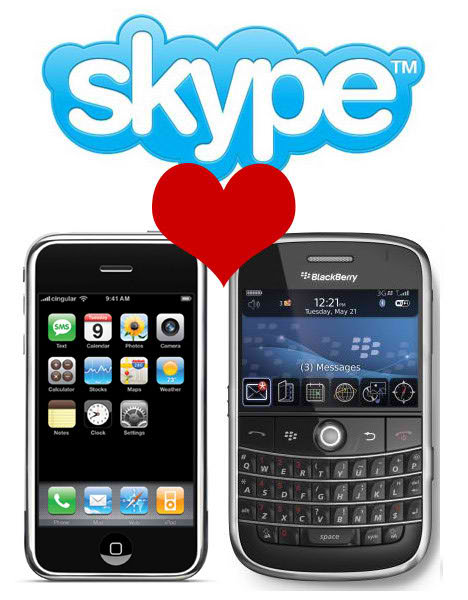Mobile VoIP
Mobile VoIP allows for your mobile phone to place VoIP calls over your company’s VoIP network. It requires the user to install an application that can connect the mobile device to the VoIP gateway setup on the VoIP server. SIP trunking can be used to assign a DID number to the mobile device before VoIP calls can be placed. There are many ways to integrate a mobile handset into a VoIP network. One way to achieve a Mobile VoIP, or mVoIP, is to turn a mobile device into a SIP client. Once a mobile device becomes a SIP client it can easily send and receive Real-Time Transport Protocol (RTP) & Session Initiation Protocol (SIP) messages through the data network. However, turning a mobile device into a SIP client requires that the device to be able to support a high speed Internet connection so the device can communicate with IP networks. WiFi, WiMAX, EVDDO rev A, or HSDPA, are all broadband connections that enable a mobile device to connect to an IP capable wireless network. These connections are needed before an mVoIP can be achieved for mobile devices to support standard VoIP protocols (mainly SIP).

Using a VoIP hosted softswitch as a gateway to bridge the connection between mobile devices and the internet is another way to achieve mobile integration of a VoIP network. A softswitch codes the human voice into SIP and RTP protocols and sends them into the SS7 infrastructure, allowing the mobile network to communicate with the VoIP network. This method gives GSM and CDMA based devices the ability to utilize advanced SIP based services by employing the use of a softswitch to allow mobile devices to communicate with SIP networks. Mobile devices can then communicate with any designated server that has SIP application software installed into to use SIP services.
The Mobile VoIP Networks
A mobile VoIP network can improve an organization’s calling rate and quality to a much better calling service than that of traditional land line phone calls. Voice over WiFi is potentially free but only available in areas with WiFi access. It also does not offer quality calls, as the connection is not secure or fast. Since the wireless network’s connection speed depends on how many users are on the network the call quality can vary, which leads to latency issues for the call along with reduce voice quality and, in areas with bad connection, dropped calls.

Using EVDO rev A or HSDPA high speed services or a dedicated switch server with SIP trunking and DID services will give mobile operators better audio quality and a wider range of coverage. With fast hand offs among the different mobile base stations, it costs more than a WiFi VoIP service but the quality of the call is significantly better.
Mobile VoIP for Corporate Uses
Organizations and international corporations can benefit from the use of an mVoIP calling solution to keep their employees connected on a global scale. VoIP has the benefit of placing calls over an IP network and will allow companies to reduce their monthly phone bill and improve the quality of their phone services. mVOIP can extend the benefits of a hosted VoIP platform by linking an employee’s mobile device to the organization’s VoIP network. Through the use of a single application, a mobile device can let employees that constantly travel stay in touch with their office phone lines. Calls can be automatically routed and a voice to text message can be used to help employees stay on top of important messages when they are out of the office. Mobile VoIP uses SIP and DID technologies to connect mobile devices to a corporation’s VoIP system. When the mobile device places a phone call using the application, the request is routed to the VoIP networks and the DID number is recorded for proper identification.
Once the user is authenticated, the call gets routed through the hosted VoIP softswitch server and travel over an IP network toward its intended destination. A dedicated switch server that is hosted inside a carrier neutral data center will provide the quality connection needed to make crystal clear VoIP calls for corporate uses. Since VoIP relies on the Internet, connectivity is the key to providing quality VoIP calls to clients on the VoIP network. Hosting a VoIP server inside a data center gives the switch server in charge of routing and supporting the IP calls a peered connection to the top ISPs in the world. A data center leverages its immense connectivity through contractual agreements with ISPs, allowing hosting servers to utilize the global IP network of many providers at the same time. mVoIP clients can leverage their corporation’s hosted switch servers and use the same services available as if they never left the office.